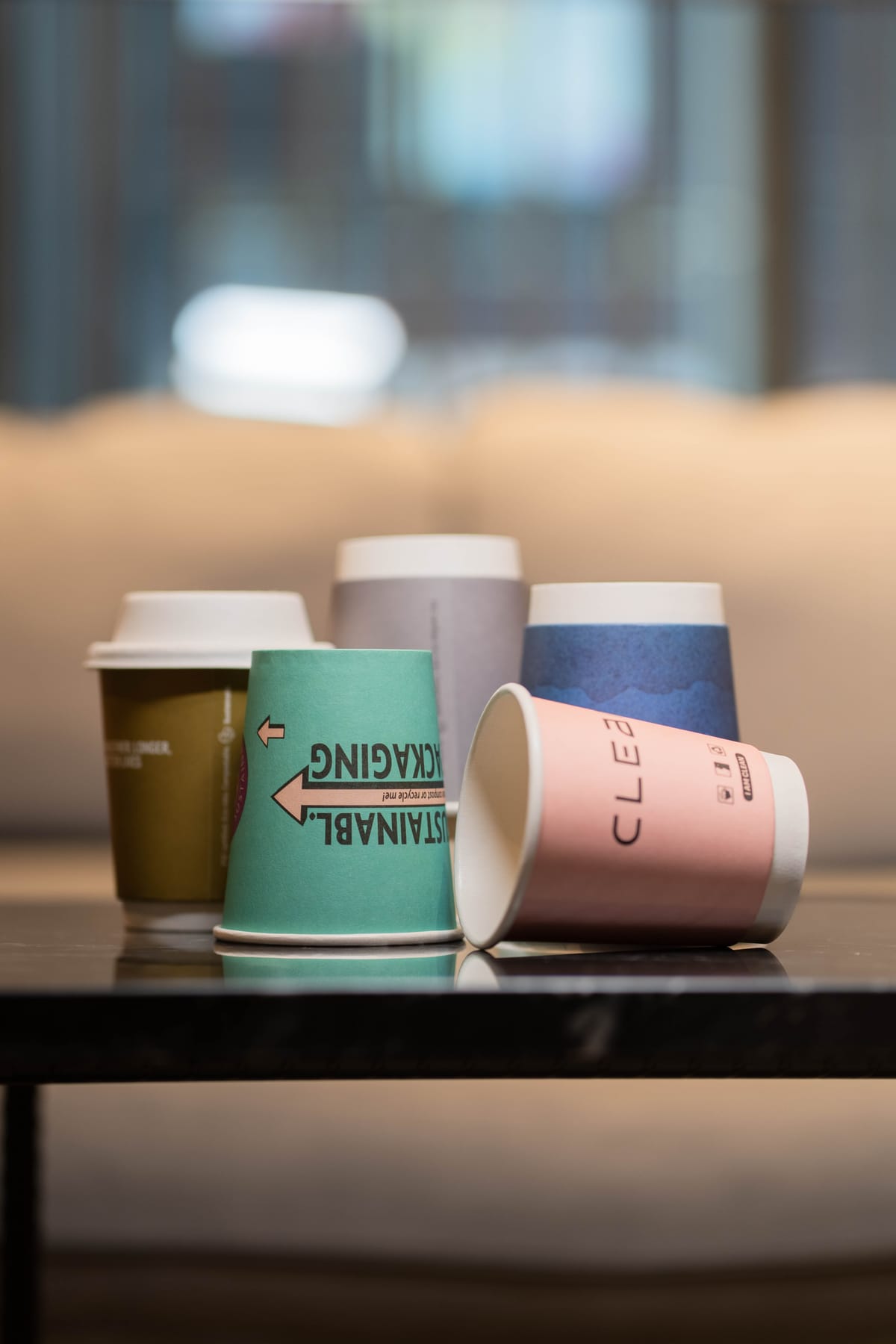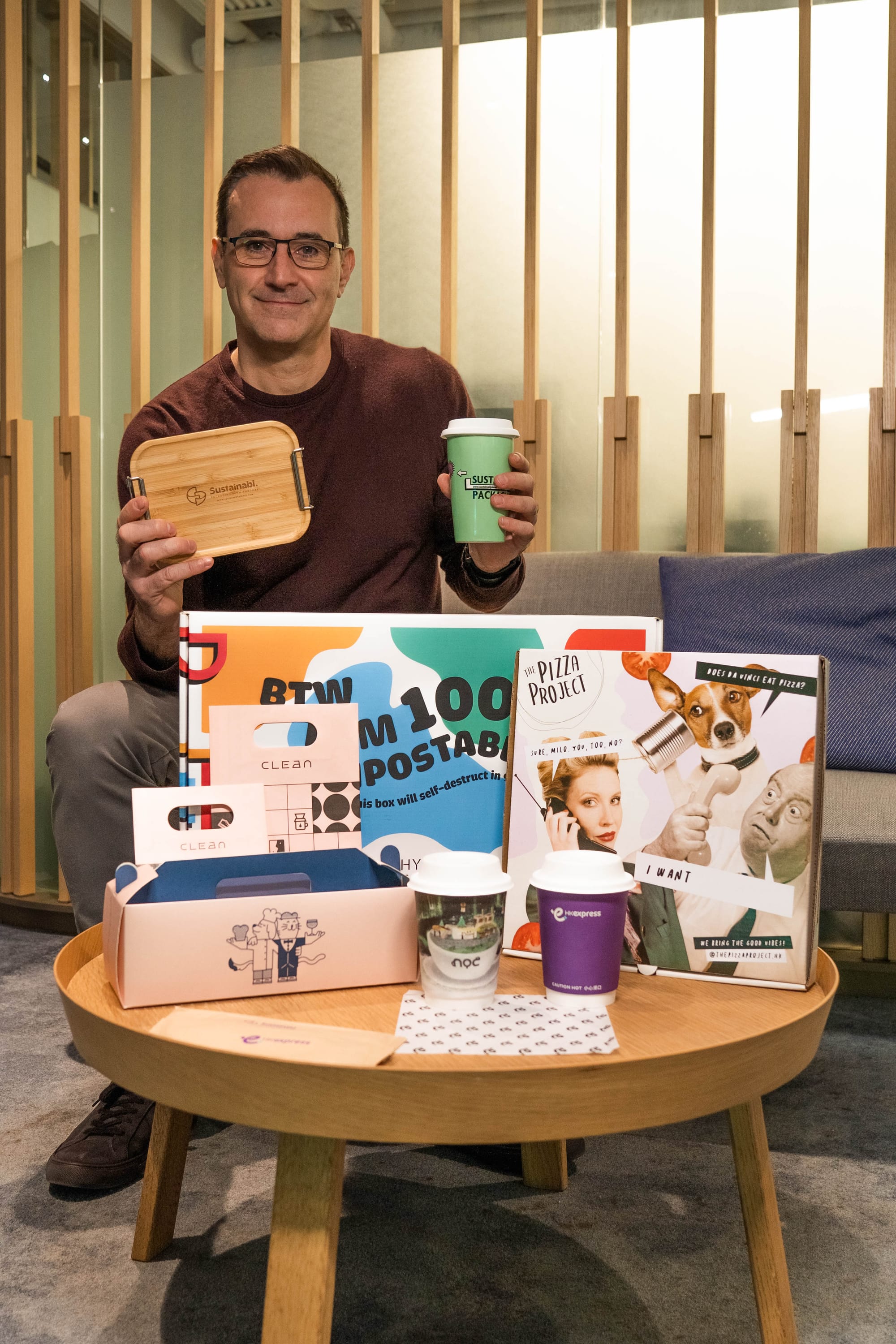Everything you need to know about Hong Kong's 2024 single-use plastic ban
The long-awaited single-use plastic ban has finally arrived in Hong Kong. Time to break out your reusable cups and cutlery!

A few minutes every morning is all you need.
Stay up to date on the world's Headlines and Human Stories. It's fun, it's factual, it's fluff-free.
The long-awaited single-use plastic ban is nearly here in Hong Kong.
As climate change continues to wreak havoc on our planet, people and governments are looking to do what they can to help save our environment. Landfill waste continues to be a problem in Hong Kong, with 20% of it being plastic – and only 6% of that is actually recycled.
To combat this, the Hong Kong government has introduced a single-use plastic ban that'll come into play in two phases, with phase one starting on Earth Day, April 22. So here's a quick guide for what you need to know about the single-use plastic ban.
What items will be replaced?
Phase one will mean a change for nine single-use plastic items for the F&B industry, including plates, cutlery, straws, stirrers and styrofoam products. Plastic food containers and their covers, plus cups and lids, will be restricted to eat-in use only.
But plastic utensils will still be provided to customers if they're part of the packaging for pre-packaged food. Any single-use plastic used for medical procedures, medicines, scientific experiments and forensics will also be exempt from the ban.
Other household items will also be included, like plastic umbrella bags, cotton buds with plastic stems and plastic toothpicks. No more wasteful partying with glow sticks, balloon handles or plastic party hats, either.
What are the penalties?
If people are found using these banned items, the environmental protection department will send a warning letter along with a HK$2,000 fine (US$255), which can reach a maximum of HK$100,000 (US$12,760). The first phase is mostly aimed at businesses, so if a member of the public purchases, uses or brings any of the banned items from abroad, they won't be fined.
Is Hong Kong ready for the switch?
TMS asked the local eco-packaging company Sustainabl. Planet for their take on Hong Kong's readiness for this change and how well Hong Kongers might adapt to greener packaging options.
"I think the people and businesses of Hong Kong have been making a steady shift to more sustainable behaviors over recent years – including trying to reduce their consumption and waste - especially single-use plastics – as well as recycling more," says the founder and CEO of Sustainabl. Planet, Richard Oliver. "The awareness of our planet's devastating levels of plastic pollution is growing, and with modern-day internet and social media, the message is now loud and clear and almost impossible to ignore. Most people will recall the plastic straw and the turtle video which really resonated with many people around the world – and underlined the scale of the plastic problem for me and was the main catalyst for Sustainbl. Planet being born."

What kinds of alternative packaging are we talking about here?
Many people are still married to the idea of their favorite sorts of takeout containers, so getting used to something new can be challenging – we're looking at you, soggy paper straws. Businesses might be worried about the added costs, too. But Oliver says there are a lot of innovative choices these days.
"Single-use plastic items now have functional, affordable, eco-friendly alternatives which are recyclable as paper, home compostable and marine biodegradable in 2-3 months (most plastic takes over 500 years to biodegrade in soil or in the ocean)," Oliver points out. "These eco-friendly products are primarily bagasse pulp (made from the agri-waste left over from the production of sugarcane and wheat farming) and responsibly sourced paper and wood products, including recycled paper products and Forestry Stewardship Council (FSC paper) produced from managed plantations which don't contribute to deforestation or increased carbon emissions."
Anything else to know?
As mentioned, this is only phase one. The next phase is expected to start next year and include items like plastic tablecloths and plastic-stemmed dental floss. Now's the time to start swapping out your everyday single-use plastic items with sustainable alternatives.
"I am optimistic that Hong Kongers are ready to embrace a planet-positive shift away from harmful plastic and bioplastic to 'truly' sustainable packaging solutions for a cleaner, greener Hong Kong," Oliver says.
Brought to you in partnership with Sustainabl. Planet.
Learn more about them here.




Comments ()